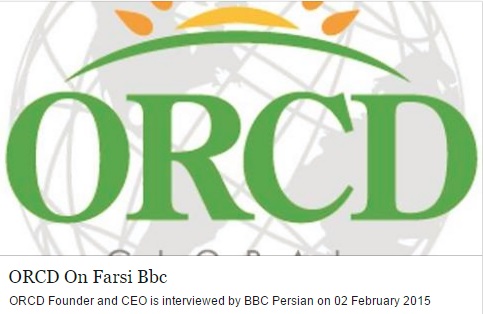24-February-2026
ORCD MILESTONES
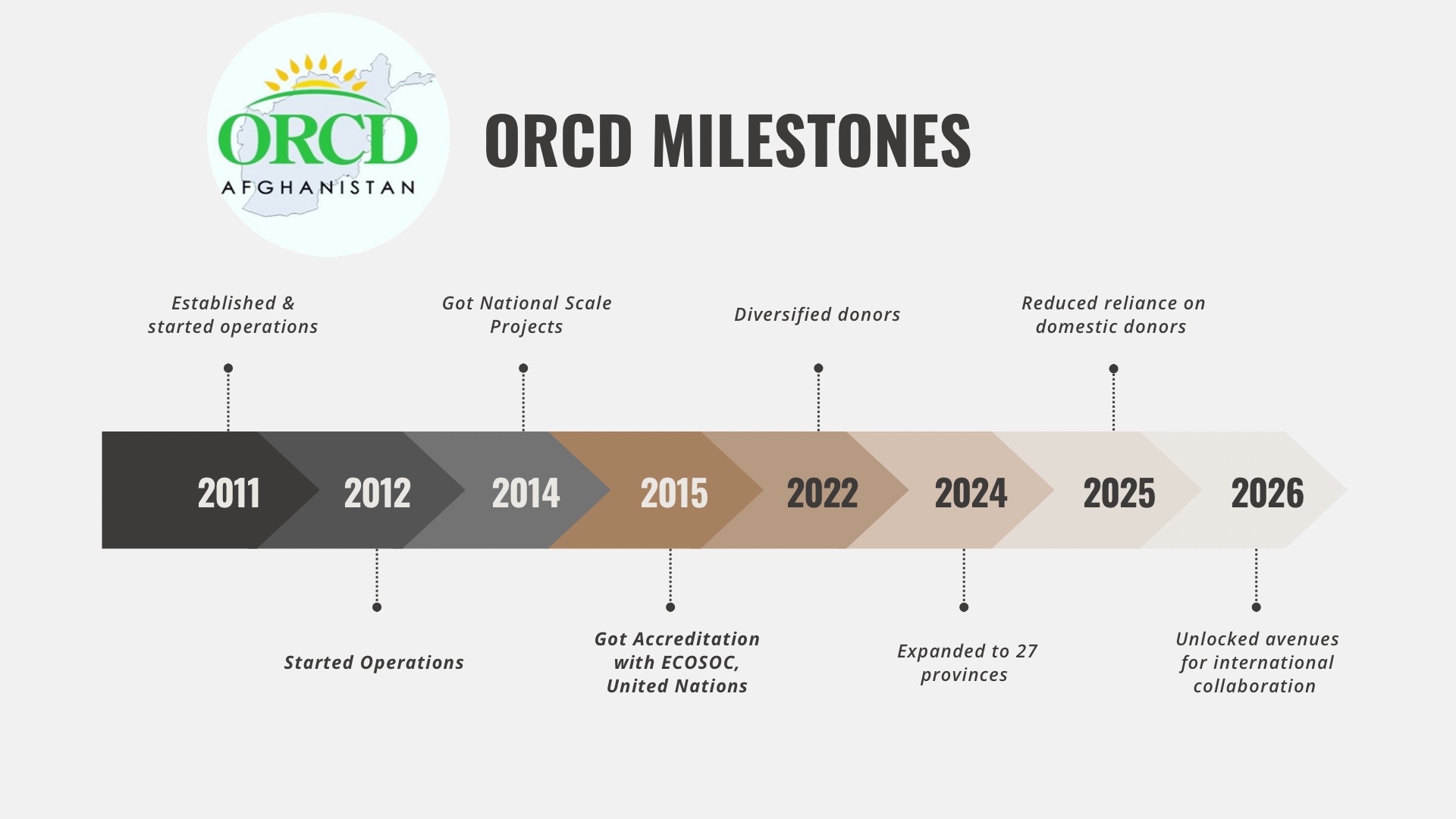
=============================================================
24-September-2025
Demonstrated Capacity of ORCD
ORCD has demonstrated substantial capacity in delivering humanitarian and development assistance across Afghanistan, managing a diverse portfolio of projects that address critical needs in health, nutrition, women's empowerment, emergency response, and community resilience. With ongoing initiatives valued at over $23 million USD, ORCD showcases its ability to handle large-scale operations in partnership with major international donors such as UNICEF and UNFPA. For instance, its flagship project on increasing access to reproductive, maternal, neonatal, child health (RMNCH), and psychosocial services spans 27 provinces nationwide, reflecting ORCD's logistical prowess in coordinating country-wide efforts amid challenging security and terrain conditions. Similarly, community-based nutrition programs in provinces like Kabul, Kapisa, Parwan, Panjshir, and Nimroz highlight ORCD's expertise in integrating facility-level and grassroots interventions to combat malnutrition, with budgets exceeding $1.5 million USD, underscoring its financial management and implementation efficiency.
The organization's completed projects further illustrate its proven track record, having successfully executed over 110 initiatives since 2012, with cumulative budgets surpassing $100 million USD. ORCD has excelled in emergency responses, such as providing lifesaving health and nutrition services during outbreaks like AWD/Cholera and Measles in eastern provinces, or distributing aid to internally displaced populations (IDPs) in Kabul and Baghlan through partnerships with entities like Penny Appeal UK and Muslim Aid. Its involvement in infrastructure projects, including the construction of wells, solar pipe schemes, and mosques in regions like Baghlan and Nangarhar, demonstrates technical capacity in water, sanitation, and hygiene (WASH) sectors. Moreover, ORCD's work in women's protection centers and vocational training, funded by UN Women and NCA, reveals a strong focus on gender-based violence prevention and economic empowerment, often in high-risk areas like Helmand and Farah.
Overall, ORCD's capacity is evident in its geographical breadth—covering nearly all Afghan provinces—and its adaptability to evolving crises, from COVID-19 relief to post-conflict reintegration. By navigating suspensions due to political changes, such as in the Eshtighal-Zaiee-Karmondana projects, and maintaining long-term collaborations with donors like WFP and UNDP, ORCD has built resilience and accountability. This extensive experience positions ORCD as a reliable actor capable of scaling interventions, fostering community engagement, and delivering measurable impacts in Afghanistan's complex humanitarian landscape.
ORCD has established robust partnerships with a wide array of United Nations agencies, collaborating on diverse projects that span health, nutrition, emergency aid, women's rights, and community development. Key UN entities include UNICEF, which has funded multiple nutrition programs, social behavior change initiatives, and emergency responses; UNFPA for expanding access to reproductive, maternal, neonatal, child health, and psychosocial services across numerous provinces; UN Women for operating women's protection centers, family resource centers, and gender-based violence prevention efforts; UNDP for integrated community resilience actions and malaria prevention programs; UNODC for boosting alternative development interventions through licit livelihoods; WHO for mobile health teams and trauma care services; WFP for food distribution, targeted supplementary feeding, and unconditional seasonal support; UNOCHA (OCHA) for emergency health, nutrition, shelter, and winterization assistance; UNHCR for IDP profiling, monitoring, and non-food item distributions; and IOM for community-based reintegration activities under the RADA project. These collaborations highlight ORCD's alignment with UN priorities and its ability to implement high-impact programs in partnership with the international community.
ORCD's extensive experience since its establishment in 2011 brings significant value added to Afghanistan's humanitarian and development sectors, particularly through its pioneering role as the first Afghan NGO to achieve Special Consultative Status with the UN Economic and Social Council (ECOSOC) in 2015, enabling enhanced global advocacy and resource mobilization. Its certification by the Afghanistan Institute of Civil Society (AICS) for excellence in program management, financial systems, and governance, combined with passing UNOCHA due diligence for accessing humanitarian funds, ensures high standards of transparency and efficiency in project delivery. ORCD's bottom-up, community-empowered approach has led to transformative impacts, such as being the first to implement the National Solidarity Program in Paktika Province and constructing essential health infrastructure like provincial hospitals in Baghlan, Laghman, and Ghazni. This deep-rooted expertise in underserved and high-risk areas fosters sustainable outcomes, builds local capacity, and bridges gaps between government, UN agencies, and communities, ultimately amplifying the effectiveness of interventions in health, education, women's empowerment, and rural development across more than 20 provinces.
=================================================================
21-September-2025
ORCD Expertise in Ending VAWG=================================================================
05-July-2025
ORCD Afghanistan Positioned as Leading Service Provider for BPHS and EPHS in Afghanistan=================================================================
05-July-2025
Why ORCD is a Suitable SP for BPHS & EPHS Pashto=================================================================
05-July-2025
Why ORCD is a Suitable potential Service Provider (SP) for BPHS & EPHS Implementation in Afghanistan ?
ORCDs unique strengths, outlined below, position it as an effective SP for delivering BPHS and EPHS services in Afghanistan.
1. Partnership with Medical Bridges Inc. for Equipment and Supply Donations
ORCD has established a strategic collaboration with Medical Bridges Inc., a U.S.-based nonprofit that donates medical equipment & supplies to resource-constrained settings. This partnership is critical in Afghanistan, where shortages of equipment have been a chronic issue in health facilities (HFs). By securing donations, ORCD will equip hospitals & HFs, directly enhancing patient care in underserved communities. According to the Balanced Scorecard (BSC), HFs lose scores in equipment functionality due to a lack of equipment & shortages of supplies. This crucial area has consistently been underfunded. Additionally, the lack of equipment has significantly contributed to mistrust by communities in the public health sector, causing SPs to falter in reaching the set targets for Performance for Pay (P4P).
This initiative demonstrates ORCDs ability to leverage global networks to meet local needs, ensuring HFs are well-stocked without straining limited budgets. ORCD has effectively addressed this critical gap by establishing a collaboration with Medical Bridges, which has pledged to send several containers of equipment from the USA to Afghanistan. As a result, the key gap related to equipment and supplies will be addressed, an advantage that few or no other SPs have access to. Refer to the paragraph extracted from the Balanced Scorecard (2020) Annex 1.
2. Telemedicine Initiative Bridging European Specialists and Afghan Doctors
ORCDs innovative telemedicine program connects European medical specialists with Afghan healthcare professionals, fostering mentorship, training, and knowledge sharing. This initiative will address the critical shortage of skilled healthcare workers in Afghanistan, many of whom have emigrated. By overcoming geographic barriers, telemedicine enables remote capacity building and improves diagnostic and treatment capabilities in isolated areas.
Modeled on proven global healthcare innovations, this program empowers Afghan healthcare staff, strengthens Afghanistans health system, and promotes long-term resilience. This initiative will undoubtedly improve the quality of healthcare services offered by BPHS facilities in remote areas covered by Health Emergency Response (HER) funding. Refer to Annex 2
3. Securing Significant International Funding for Afghanistan
ORCD has successfully secured contracts with prominent international organizations, including Penny Appeal USA, Charity Right UK, Islamic Relief USA, Penny Appeal UK, Action for Humanity, Muslim Aid UK, Penny Appeal Canada, ILM UK, and King Salman Humanitarian Aid and Relief Centre (KSrelief). These partnerships bring substantial funding into Afghanistan, which could potentially support BPHS and EPHS implementation if ORCD serves as an SP. Additionally, these international donors will be mobilized to fund infrastructure projects, such as hospital annexes in Baghlan, Laghman, and Ghazni, which were constructed by ORCD when it was responsible for BPHS from 2017 to 2022. In an environment marked by donor fatigue and funding cuts, ORCDs ability to channel external resources into the country ensures sustained healthcare access and program scalability. Previous HER projects in these provinces often lacked resources for building or renovation, failing to meet structural quality standards. ORCD will leverage this supplemental funding to address those gaps and improve its performance in the provinces where it implements BPHS and EPHS under the next round of HER funding.
Overall Assessment
ORCD is exceptionally qualified to implement BPHS and EPHS due to its strategic partnerships, innovative solutions, and proven ability to attract significant international funding. Its collaboration with Medical Bridges Inc. addresses immediate material shortages, the telemedicine initiative builds long-term healthcare capacity in providing quality services, and its global contracts ensure financial and programmatic sustainability. Together, these strengths enable ORCD to deliver equitable, high-quality healthcare services across Afghanistans most vulnerable provinces more efficiently than many other organizations competing for this funding.
Annex 1. Highlights of Balance Scorecard related to equipment in provinces targeted by ORCD
In 2020, the BPHS BSC revealed that Nuristan recorded the lowest score at 63.7, reflecting a severe decline of over 20% compared to the three-year average, indicating critical deficiencies in functional equipment and a high likelihood of falling below the Lower Benchmark (LBM). Additionally, equipment functionality has been highlighted as a concern in Laghman and Ghazni, where many facilities potentially struggle to meet BPHS standards.
Similarly, Nangarhar, Parwan, and Kapisa faced concerning trends, with scores (5 to 10%) lower than their three-year averages, signaling a risk of slipping below the LBM if not addressed. In contrast, Khost was among the provinces showing improvement, with a notable increase in its Equipment Functionality Index score, aligning closer to or exceeding the Upper Benchmark (UBM). These disparities underscore the need for targeted interventions, particularly in Nuristan, to ensure equitable access to functional medical equipment across Afghanistans HFs
Annex 2 Highlights of BSC related to capacity building
In the 2020 Afghanistan BPHS BSC, capacity building, particularly through staff training (B-9: Staff Received Training in the Last Year), showed varied performance across Nuristan, Laghman, Nangarhar, Parwan, Kapisa, Ghazni, and Khost. Nuristan recorded the lowest score at 4.4, reflecting severe deficiencies in training provision and a high likelihood of falling below the Lower Benchmark (LBM). Laghman and Ghazni were part of broader trends where training coverage remained limited, with facilities potentially struggling to meet BPHS standards. Nangarhar, Parwan, and Kapisa exhibited concerning declines, with scores (5 to 10%) lower than their three-year averages, indicating a risk of falling below the LBM without intervention. In contrast, Khost was among seven provinces achieving high scores above 34, showing significant improvement in training provision, aligning closer to the Upper Benchmark (UBM) which needs to get further consolidated. These disparities highlight the need for targeted capacity-building efforts, to enhance healthcare worker skills across Afghanistans health facilities.
=================================================================
30-June-2025
A Major Milestone for ORCD
We are proud to announce that ORCD, in partnership with the United Nations OCHA under AHF, has successfully completed seven transformative humanitarian projects across Afghanistan.
These initiatives have brought vital health, nutrition, trauma care, and winterization support to thousands of vulnerable people affected by conflict, displacement, and drought.
Our Impact in Afghanistan:
1.Health Services in Baghlan (AFG-15/3481/SA2/H/NGO/398) - Delivered critical care to conflict-affected and displaced communities. Audit: Unmodified Opinion
by Ernst & Young
2.Emergency Health in Laghman (AFG-16/3481/SA1/H/NGO/488) Provided life-saving services to war victims.
Audit: Unmodified Opinion
by Samman & Co. BDO Jordan
3.Trauma Care in Ghazni & Baghlan (AFG-16/3481/SA2/H/NGO/3285) Supported emergency trauma care for those in need. Audit: Unmodified Opinion
by Samman & Co. BDO Jordan
4.Trauma,Nutrition & Protection in Zabul & Ghazni (AFG-17/3481/SA2/H-N-APC/NGO/6764) Addressed holistic needs of affected men, women, boys, and girls.
Audit: Unmodified Opinion
by Samman & Co. BDO Jordan.
5.Nutrition Services in Sar-e-Pul (AFG-18/3481/SA2/N/NGO/9712).Tackled malnutrition among drought-affected populations.
Audit: Unmodified Opinion
by Samman & Co. BDO Jordan
6.Health Services in Sar-e-Pul, Samangan & Helmand (AFG-18/3481/RA3/H/NGO/10486). Extended healthcare to drought-hit communities.
Audit: Unmodified Opinion
by Samman & Co. BDO Jordan
7.Winterization in Nuristan & Paktika (AFG-19/3481/RA3/ESNFI/NGO/14204) Provided essential winter support to vulnerable families.
Audit: Unmodified Opinion
by Samman & Co. BDO Jordan
Transparency & Excellence: All projects received Unmodified Audit Opinions from respective auditors reflect our commitment to accountability.
A huge thank you to our dedicated teams, and partners for making this impact possible.
Together, we are building a stronger, more resilient Afghanistan!
Want to learn more? Contact either auditors or ORCD for audit reports and details?
Share your thoughts or join our mission! Comment or visit
#HumanitarianAid #Afghanistan #ORCD #OCHA #NonProfit #CommunityDevelopment #ImpactMatters #AHF #UNICEF #unicefafghanistan #UNFPA #WHOafghanistan
=================================================================
14-May-2025
Communities Satisfaction about ORCD Afghanistan
02-Sep-2021
Afghanistan: Urgent plea from the Federation of Afghanistan Medical Association and Alliance of Health Organization
The Federation of Afghanistan Medical Associations (FAMA) and Alliance of Health Organizations (AHO) call upon the international community after the decision of the World Bank to suspend its financial support to the health services in Afghanistan.
Following the recent political changes, Afghanistan has entered to an unprecedented humanitarian crisis coupled with millions have displaced, unemployment strikes with the already overloaded Covid disastrous impact. Even prior to the recent political changes, Afghanistan was in the low human development category—positioning it at 169 out of 189 countries. The current withdrawal of donors would further deteriorate the humanitarian crisis and could lead to a possible collapse of basic humanitarian services provision. According to the UN Secretary-Generals statement on Afghanistan stating that: Today, almost half of the population of Afghanistan ,18 million people need humanitarian assistance to survive. One in three Afghans do not know where their next meal will come from. More than half of all children under-five are expected to become acutely malnourished in the next year. People are losing access to basic goods and services every day. A humanitarian catastrophe looms. Now more than ever, Afghan children, women and men need the support and solidarity of the international community.
Despite all these facts; unfortunately, the Word Bank, as one of the main donors and Funding Manager for Afghanistans health sector, has paused funding for projects including the health and nutrition sector in Afghanistan, following their board decision on 24 August 2021. This decision will definitely impact the lives of the most vulnerable people and in the short term cause:
Shut down of 2331 hospitals and health clinics,
Lay off of more than 25142 health professionals including more than 7500 female health staff who will lose their jobs,
it will further deeply limit access of more than 35 million inhabitant of the country throughout all 34 provinces to basic and life-saving health and nutrition services, and, as an impact; it is expected that at least 150 pregnant mothers will die per day. It will be the worst health crises of human history in the world especially when coupled with the COVID-19 in October 2021, the expected fourth wave.
This comes when as per the article 25 of the UN Universal Declaration on Human right clearly states that: Everyone has the right to a standard of living adequate for the health and well-being of himself and of his family, including food, clothing, housing and medical care and necessary social services, and the right to security in the event of unemployment, sickness, disability, widowhood, old age or other lack of livelihood in circumstances beyond his control. Motherhood and childhood are entitled to special care and assistance. All children, whether born in or out of wedlock, shall enjoy the same social protection.Additionally, Article 10.4 of the World Bank constitution/agreement articulating the Banks economic and political impartiality, yet the World Bank decided to pause/halt the financial supports for all the projects including the health and nutrition sectors in Afghanistan. This appears to be in conflict with both the Universal Declaration of Human Rights and Banks constitution/agreement.Thus; we, the Federation of the Medical Associations (FAMA), and the member NGOs of Alliance of Health organizations (AHO), on behalf of the people of Afghanistan calling on the following Stakeholders:
On the World Bank, USAID, EU, and all other donors: To urgently and immediately review their decisions regarding the abrupt pausing/halting of their funding to avoid possible health and nutrition crises as well as the sudden collapse of the available health and nutrition sector capacity and infrastructure through taking feasible alternative options. such as direct contracting with BPHS/EPHS implementing NGOs and/or through an independent financial management body such as World Health Organization or other United Nations agencies.
On the WHO as health cluster lead: To take this urgent issue as top emergency agenda on the world table, continue their high level advocacy with the donor community including WB for continuing their financial support for funding health and nutrition sectors to avoid any possible health and nutrition crises and collapse of the available capacity and infrastructure.
On the Government of Afghanistan (Emirate): To provide assurance to donors and delivery partners; the security for their staff, assets and offices. Develop workable policies and strategies to facilitate donors and implementing partners collaboration to sustain the health sector achievements to avoid losing them abruptly. The government to call on all health expert (public health and hospital) to develop a new 3-5-year policy/strategy to steer and put the current health situation in a better place. The government should also assure the international staff in Afghanistan and Afghan health diaspora abroad to come forward and provide their expertise to the best of their ability.We, the Afghans are human being as other people and we deserve a better life as others. The international communitys responsibility is not over yet, and we are holding accountable all nations in particular the UN agencies to recommit to their obligations in providing their generous contribution to the health sector in Afghanistan by reconsidering their decisions. If the discontinuation of financial contribution continues as it is for another few months, we will soon witness the unprecedented high mortality and morbidities in particular among women and children due to the lack of basic health services provision. This devastating effect would be bigger than the 4 decades of conflict.
Finally, we call upon your recommitment to support the health sector of Afghanistan and we as Afghan health associations/organisation, fully support your generous contribution and will work collaboratively to alleviate the current health sector issues.
Sincerely
FAMA and AHO
=================================================================
27-Sep-2018
ORCD was elected as member of the Working Group of AICS certified NGOs today in Kabul. Meanwhile, it was elected by acclamation as the Information Secretary of the Steering Committee
ORCD signs Memorandum of Understanding (MOU) with the Ministry of Women Affairs (MoWA) of the Islamic Republic of Afghanistan for cooperation in improving the situation of women -ending violence against them- in Laghman and Baghlan Provinces
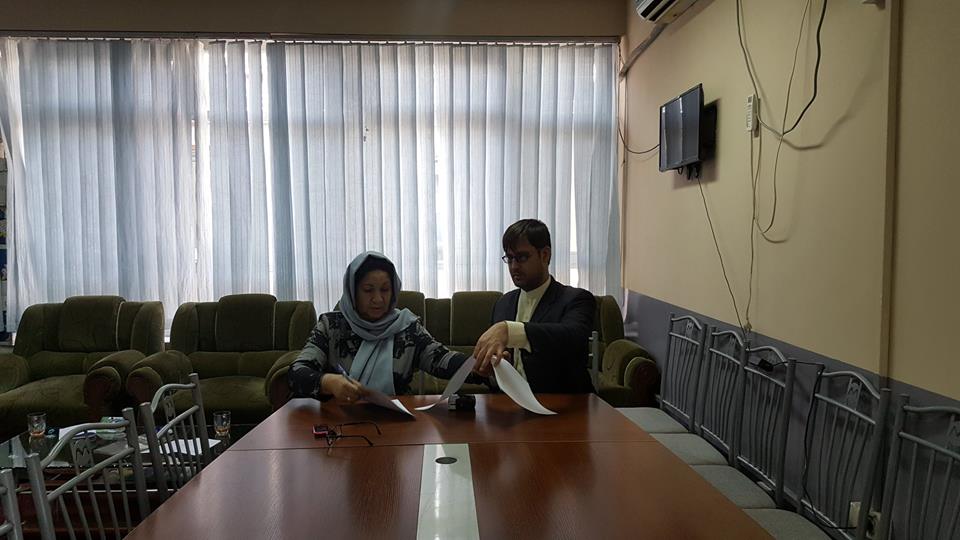
=================================================================
ORCD and FHI 360 signs a contract embarking on a joint partnership in a project for the implementation of Community-Led Total Sanitation (CLTS) in the selected villages of Sarepul and Zabul Provinces which could be expanded to other districts after achieving remarkable success.
Afghan Context Community Led Total Sanitation in Sozmaqala District Sarepul Province and Qalat District, Zabul Province.
The AC-CLTS approach will be implemented in Sozmaqala District of Sarepul Province, Sozmaqala District has a population of 62,650 inhabitants and covers 51 villages, the list of the villages with population attached and in Qalat District of Zabul Province, Qalat District has a population of 37,009 inhabitants and covers 140 villages, with an average of 6,169 Households.
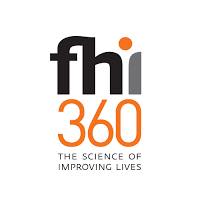
==================================================================
On March 28, 2018, ORCD Ghana was registered with the Government of Ghana becoming its 3rd sister partner organization with ORCD Canada after ORCD-Afghanistan and ORCD Global.
It is worth mentioning that Orcd Afghanistan is the main inspiring agency from which all other ORCDs in the world have replicated from. We are committed to continue getting inspired from the success story of Afghanistan and have it replicated in other countries.
It has already secured commitment from donors and big NGOs to partner for implementing welfare projects in Ghana in coordination with other ORCDs in the world.
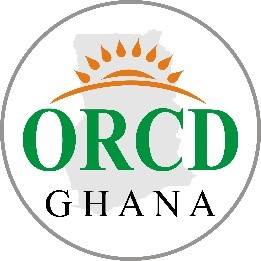
================================================================
July 18, 2017
PRESS RELEASE
Under the stewardship of the Afghan Ministry of Public Health (MOPH) ORCD is now involved in facilitating BPHS to around 37% of the total population of Afghanistan.
Since July 2015, ORCD has been working under the stewardship of the Ministry of Public Health (MOPH) in facilitating the provision of Basic Package of Health Services (BPHS) in Ghazni Cluster providing services to 663,900 population (CSO, 2015-2016) in nine districts of Ghazni Province.
This year in July 2017, ORCD managed to expand this contribution to two more underserved provinces: Sarepul and Zabul covering a total 863,703 population (559,577 in Sarepul Province, and 304,126 in Zabul Province).
In addition, in partnership with the HNTPO, ORCD is being set to get involved in strengthening the Afghan Health System in Kabul through facilitating provision of BPHS to a total 3,678,034 population as part of the Kabul Urban Health Project under the stewardship of the Kabul Provincial Public Health Office of the Ministry of Public Health. As a Sub Consultant, ORCD is strengthening the capacity building, infrastructure and pharamaceutical management components of the project.
In total, ORCD is now actively involved in the facilitation of the provision of BPHS under the stewardship of the Afghan Ministry of Public Health (MOPH) to a total 5,205,637 population (1,527,603 directly in Ghazni, Sarepul and Zabul Provinces) and 3,678,034 population (in Kabul Urban Areas in partnership with HNTPO) in the country.
The coverage area is the bulk of the total population of Afghanistan which constitutes 37% of the country making ORCD one of the leading BPHS implementing partners in the country.
================================================================
March 24, 2015
PRESS RELEASE
Confiscation of medicines, supplies, equipment and ambulance of the First Aid Trauma Post (FATP) of Dahna -e Ghori, Baghlan Province
Afghan National Security Forces had confiscated all equipment, medicines, medical supplies and ambulance of the Dahna -e Ghori FATP as part of the cleansing operation in Dahna e Ghori District, taking it with them to provincial headquarters. However, no staff were arrested. This incident took place at 02:30 PM on March 06, 2016.
As part of a contract between ORCD and UNOCHA starting from November 2015 for one year, Dahna e Ghori FATP was among one of the three FATPs which was established in December 2015 with funding from Common Humanitarian Funds (CHF) in Baghlan Province. While due to fighting and being in the terroriity beyond the full control of GOA, Dahna e Ghori FATP functionality was intermittent through the past 2-3 months. However, other FATPs in Baghlan -e Markazi and Doshi Districts were functioning well. Upgrading the capacity of the Baghlan Provincial Hospital to provide specialized orthopedic services is another important component of this project.
According to the Health Cluster/WHO guidelines, medicines, equipment and other supplies provided to an FATP are aimed at providing basic life support and its services included only first aid to victims of war. Specialized surgical interventions are neither within the scope of an FATP nor ORCD was responsible to provide them. As it is a standalone FATP, it also maintained an ambulance for the purpose of referrals of the victims of war in the area.
In the view of this, ORCD had no responsibility of specialized services provided in Dahna e Ghori nor have any knowledge of the provision of any high-tech medical equipment or items found and confiscated in the area which are beyond the scope of an FATP.
The ANDS/NDS questioned our staff as to why they were operating in AOG territory ORCD provincial staff were immediately engaged with GoA on the matter and clarified to them that the establishment of the FATP was well-coordinated with all involved stakeholders. Written letters from the following governmental institutions have been available which indicate that its establishment was well-coordinated:
• Provincial Public Health Office, Baghlan
• Provincial Governor Office, Baghlan
• NGO Department of Provincial National Security Department of Baghlan
• District Governor of Dahna e Ghori District
• Community
Although NDS Baghlan released the ambulance today dated 19 March 2016, yet the equipment, medicines and other items supplied by ORCD to this FATP are withheld with the provincial authorities. And discussions are going on to retrieve them so that emergency health services for the victims of war could be resumed.
The issue has been reported to UNOCHA and Afghanistan National Health Cluster that will be following it with the provincial authorities and will ensure health service delivery to pave the way for the resumption of emergency health services and avoidance of confusions in due course.
ORCD which is the only Afghan NGO having Special Consultative Status with the United Nations since 2015 is one of the fast-growing Afghan local NGO originated from Baghlan with approximately 1800 staff across the country. It has been registered with the Ministry of Economy since 2011 and has been working in Baghlan since 2012. ORCD has jointly implemented projects with Aga Khan Foundation (AKF), and GIZ/DETA in Baghlan Province and has been supporting health facilities in Ghazni in partnership with the Ministry of Public Health (MOPH). It also serves as the Facilitating Partner for the NSP Program of the MRRD. It has been the implementing partner of four UN agencies (UNOCHA, WFP, UNHCR & UN Women). ORCD is an elected member of the Humanitarian Country Team (HCT) on behalf of Afghan local NGOs. ORCD also serves as Co-Chair of the Afghanistan National Health Cluster.
For further information, please contact:
Media and Advocacy Department Email: media.advocacy@orcd.org.af Phone: +93777103090
------------------------------------------------------------------
Interviewed by BBC Persian Service from New York, I explain how ORCD sets a precedence in the history of Afghanistan by acquiring Special Consultative Status with the ECOSOC of United Nations (UN).
This is the maximum highest status an NGO can have with the UN. No other Afghan national NGO in Afghanistan had acquired such as status in the past.
In addition, some vicious questions of BBC about allegations of corruption over NGOs in Afghanistan are also answered.
PRESS RELEASE
It is to inform you that the Economic and Social Council (ECOSOC) at its Coordination and management meeting of 08 April 2015 adopted the recommendation of the Committee on NGOs and granted Special Consultative Status to Organization for Research and Community Development. ORCD received the official notification from the United Nations today dated 13 April 2015.
With this, ORCD registers its name as the first and only Afghan NGO having special consultative status with the ECOSOC/ United Nations.
This status will enable ORCD to actively engage with ECOSOC and its subsidiary bodies, as well as with the United Nations Secretariat, programs, funds and agencies in a number of ways.
This status will allow ORCD being an Afghan national NGO to be informed about the provisional agenda of the Economic and Social Council.
ORCD with this status will be entitled to designate official representative to the United Nations (UN) in New York, and the United Nations Offices in Geneva and Vienna. ORCD’s representatives will be to able to register for and participate in events, conferences and activities of the United Nations. ORCD will designate authorized representatives to sit as observers at public meetings of UN General Assembly, ECOSOC and its subsidiary bodies, Human Rights Council and other United Nations intergovernmental decision making bodies.
In addition, ORCD having special consultative status with ECOSOC will be able to submit written statements relevant to the work of the Council on subjects in which ORCD has a special competence such as women empowerment, health, protection, rural development, etc. These statements may be circulated by the Secretary-General of the United Nations to the members of the Council
To get more information, you can contact the following:
Dr. Qudratullah Nasrat
Chief Executive
q.nasrat@orcd.org.af
+93 (0) 729802902
------------------------------------------------------------------
Based on the invitation of the United Nations, ORCD Representatives attend the 2015 Session, Committee on NGOs that started on January 26, 2015 and continued until 04 February 2015. During the session, the committee reviewed applications from NGOs around the world including the one from ORCD for accreditation and granting consultative status with Economic and Social Council (ECOSOC) of the United Nations. ORCD was one of the few NGOs which was recommended accreditation by the committee for receiving Special Consultative Status with the ECOSOC, UN becoming the first Afghan NGO receiving such rewarding privileges.
By having consultative status, ORCD will be able to:
• Provide expert analysis on issues directly from its experience in the field
• Serve as an early warning agent
• Help monitor and implement international agreements
• Help raise public awareness of relevant issues
• Play a major role in advancing United Nations goals and objectives
• Contribute with essential information at organization events
For ORCD, this status is important because it will be able to:
• Attend international conferences and events
• Make written and oral statements at these events
• Organize side events
• Enter United Nations premises;
• Have opportunities to network and lobby
For further information, please contact:
Qudratullah Nasrat, CEO, ORCD Afghanistan
q.nasrat@orcd.org.af; Phone: +1 646 7444296
Suzanne Minarcine, CEO, ORCD Global
drsuzannem@gmail.com;+1 4782353083
------------------------------------------------------------------
ORCD has been invited for granting consultative status by the Committee on NGOs of the United Nations. The 2015 Regular Session, Committee on NGOs will take place in February 2015 at the UN Head Quarters in New York. ORCD will have an opportunity to give a presentation about its activities in Afghanistan as well as its contacts in Pakistan, Zimbabwe, UK and the United States.
Dr. Qudratullah Nasrat, the Founder & CEO of ORCD will represent ORCD in this important session taking place in the UN Head Quarters in New York, USA.
After the careful consideration, the United Nations (UN) will recommend ORCD for giving ECOSOC status which will be a great honor for ORCD and all Afghan NGO communities. ORCD on behalf of Afghan NGOs will start having a voice there in the United Nations. If ORCD is enrolled as having consultative status with UN, it will become one of the few Afghan NGOs having such a high-profile status in the United Nations.
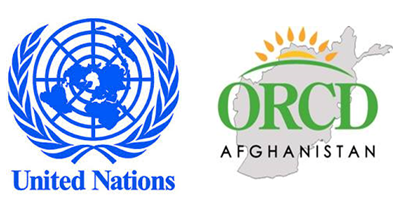
------------------------------------------------------------------
ORCD qualified for 2015 funding by WFP in Afghanistan, On annual appraisal, World Food Progamme (WFP) of Afghanistan views ORCD as an effective partner with 'good' performance during the year 2014 for bringing positive changes in the livelihood of the target beneficiaries in Paktika Province. ORCD was one of the Implementing Partners (IP) of WFP in the said province in 2014.
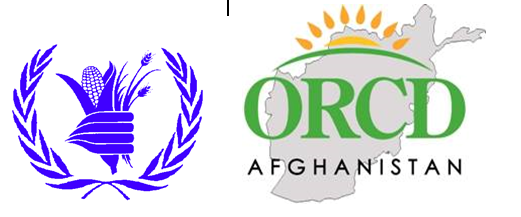
------------------------------------------------------------------
Organization for Research & Community Development (ORCD) in partnership with The University of New South Wales from Australia wins a bid it submitted to Marie Stopes International for the assessment of the MSI programmes in Afghanistan as part of a competitive bidding process.
ORCD being the Lead Partner with state of the art expertise from the University of New South Wales will conduct this assessment in two provinces of Afghanistan. The assessment will be a mixed of qualitative and quantitative methodology which will be undertaken jointly over of a period of three months by the two entities under the technical oversight of qualified personnel from the said university.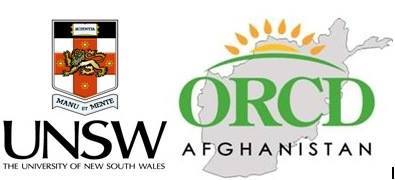
------------------------------------------------------------------
ORCD signs a second contract with UNHCR for managing non-food items aid for the displaced population fled from North Waziristan to Barmal and other districts of Paktika Province.
This project seeks to improve the living conditions of a total up to 3500 families of displaced population in Barmal, Urgun and other districts of Paktika province through distribution of Non-food items (NFIs). The project will be implemented in collaboration with district governor office, communities and other stakeholders i.e. World Food Programme.

------------------------------------------------------------------
Under Emergency Food Aid Programm for vulnerable rural households in Paktika Province, ORCD rolls out a project in 6 districts of this province called ‘Food for Light work’.
The aim of the project is to alleviate food insecurity in the target districts and improve the resilience of target communities against drought in the province.
A total 952 Metric Ton food items comprised of wheat, pulse, oil and salt will be distributed to a total 2,260 persons as part of Food for Light work programme in Sharan, Yahyakhail, Janikhail, Yosufkhail, Urgun, Matta Khan, and Khairkot districts.
Thanks to the World Food Programme that made this important endeavor possible in this province
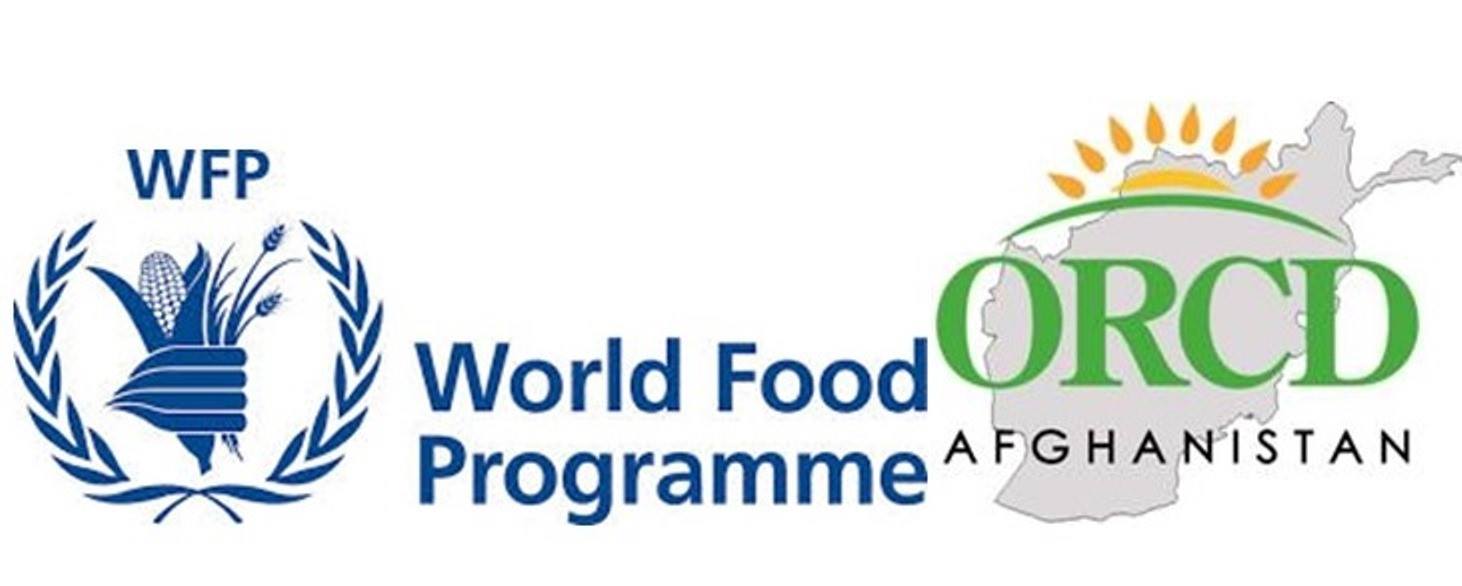
------------------------------------------------------------------
Commitment and Dedication for Women Empowerment in 2013
Another project titled as “women empowerment” through community strengthening system promoting “was an 18-mont project implemented in three districts of Daikundi (Neli, Gitti and Kejran). With funding from European Union, this project was implemented in partnership with HNTPO. It has been in response to the pressing needs of women’s, built their capacity and encouraging their participation in economic life.
The overall aim of the project was to empower Afghan women to genuinely become an integral part of the society. This was done through increasing capacity building the capacity of men and women activists by targeting 15 focal point women activists. The fact that these activists served as focal points for spreading awareness safely ensured the sustainability of the project. The project also aimed at enhancing coordination between men and women activists in the target province.
Major activities included conducting community mobilization within target communities, training 15 focal point and establishing Women Development Committees in all target districts of this province.
The expected result of the project was to have assessment of exact needs consultation and resources in targeted areas, focus group discussion with provincial key figures and group education female leadership at community based support mechanism to women and girl child, staff capacity building exchange of expertise, capacity building of provincial and local authorities and regular coordination committee meeting at provincial level.
The progress made during the reporting period was impressive and was within the timeline set in the beginning of the project. Required project staffs were identified, training of trainers has been offered, necessary orientation and coordination meetings with Directorate of Women Affairs and other stakeholders were held.
The provincial department of women affairs, and other stakeholders expressed highest satisfaction about ORCD activities in this provide for the demonstrated capacity and successes achieved.
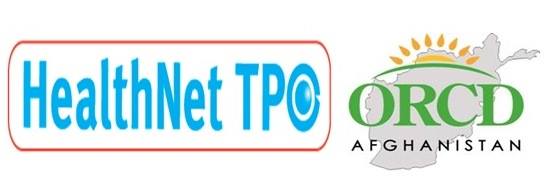
------------------------------------------------------------------
In 2013, ORCD hits an important milestone through implementing a program designed toward the empowerment of women in Daikundi Province.
Situation/Background: The programs continued because it aimed at addressing needs of women in the province, who are in a terrible situation due to domestic violence, lack of awareness on their rights and their minimum role in the social and economic life. By implementing this project, ORCD wanted to improve the living conditions of women by making them aware of their basic rights and place in a society in accordance with the the religion and the Afghan Constitution. It also aims at making men aware of the women rights to play a supporting role in this regard. The program was important for Daikundi Province because it was a far-flung and hardly accessible province where women had been stripped of their basic rights and were victim of multi-lateral violence in terms of forced marriage, violence, etc.
Program Activities: ORCD started this project with the solid commitment of advocating and building capacity for long lasting positive impact on women's life. The first step taken was to approach influential members of the society to get their commitment and support. Later, we selected local level eligible people to have them trained so they can disseminate messages about women's rights. We also mobilized mass media for supporting women rights.
The direct beneficiaries were women and men practically involved in advocating for women rights. The indirect beneficiaries, who are not less than 60,000 people, were the ordinary men and women living in the targets districts and adjoining areas. Since the TV targets all population of Afghanistan at national level, the population having access to mass media at national level were also considered among indirect beneficiaries of this project.
The direct beneficiaries, who got trained from ORCD, were asked to go their respected villages and spread messages about women rights.
Results/Impact: Since the project was only for less than 6-month duration, the end impact might have not be tangible but what we have observed that progress toward women empowerment promising. Our team noticed that men involved as direct beneficiaries started acknowledging importance of respecting women and preserving their rights. This shows that the behavior of men targeted by this project seemed to be significantly changing.
ORCD developed a sustainability approach through which all stakeholders, including department of women affairs, were extensively engaged in supporting the project activities. ORCD not only ensured achieving the desired results by conducting monitoring and supervisions but also worked at grassroots levels by involving Community Development councils (CDCs) to establish women committees in order to ensure the desired results are achieved.
Evaluation/Evidence: ORCD put in place integrated monitoring and evaluation mechanism, which applied to project activities, organized regular monitoring field visits and consolidates regular narrative and financial reports with inputs from stakeholders in conformity with the agreement established between ORCD and Counterpart International with funding from USAID. Project inputs, activities and outputs continue to be subject to regular monitoring and evaluation procedures with close oversight authorized
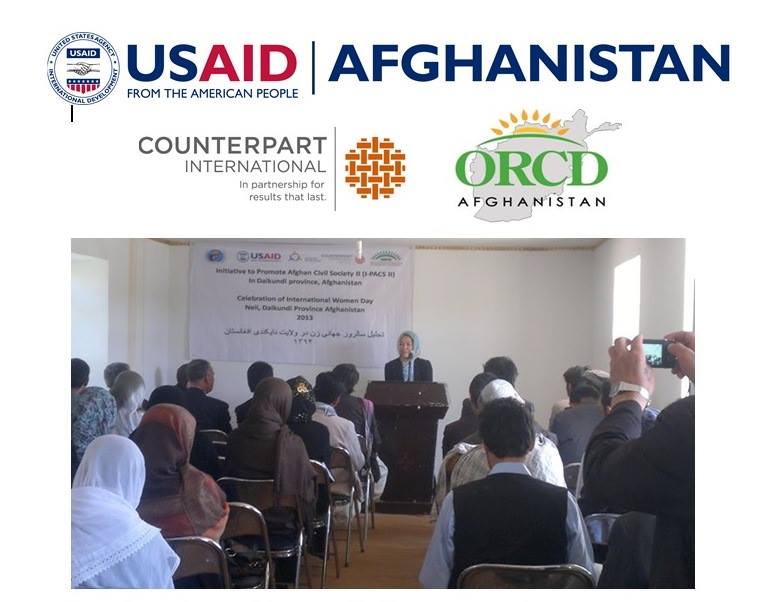
------------------------------------------------------------------
JICA extends contract with ORCD for supporting the mobile health team of the Ministry of Public Health which is aimed at providing anti-TB services to Internally Displaced Population (IDPs) in Ningarhar province.
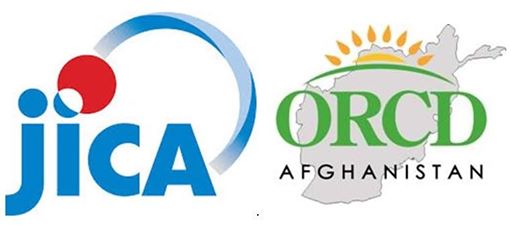
------------------------------------------------------------------
UN Women has approved the proposal of ORCD for a project aimed at advocacy and Prevention of Violence Against Women in Afghanistan.
With reference to ORCD Afghansitan's proposal submitted under the UN Women Call for Proposals on Advocacy and Prevention of VAW in Afghanistan, It has been confirmed that after following a comprehensive appraisal process, the project proposal which was forwarded by ORCD Afghanistan is one of the recommended projects for grants to implement advocacy and prevention advocacy over the course 2014-2015.
In this regard, UN Women will invite ORCD Afghanistan to take part in a final capacity assessment and to discuss the possibility of amending the submitted project proposals within the overall strategic framework of the proposal, to best ensure that the project implementation is compliant with UN Women’s strategy and vision for Afghanistan, including UN Women’s rules and regulations for project implementation.
Advances in Business-related Scientific Research Conference 2013 Report:
UN Human Trafficking 2013 Field Report:
Date: 15-May-2013
Click on below Link to view the Report.
UN Human Trafficking 2013 Field Report
ORCD Signs a contract with Counterpart International
Date: 18-Mar-2013
ORCD signs a contract with Counterpart International for implementing a project aimed at women awareness in Daikundi province about their rights in the views of Afghan laws. This project will entail community mobilization, training and developing TV and radio spots in line with the guidelines of Afghan Ministry of Women Affairs under the oversight of Counterpart International




